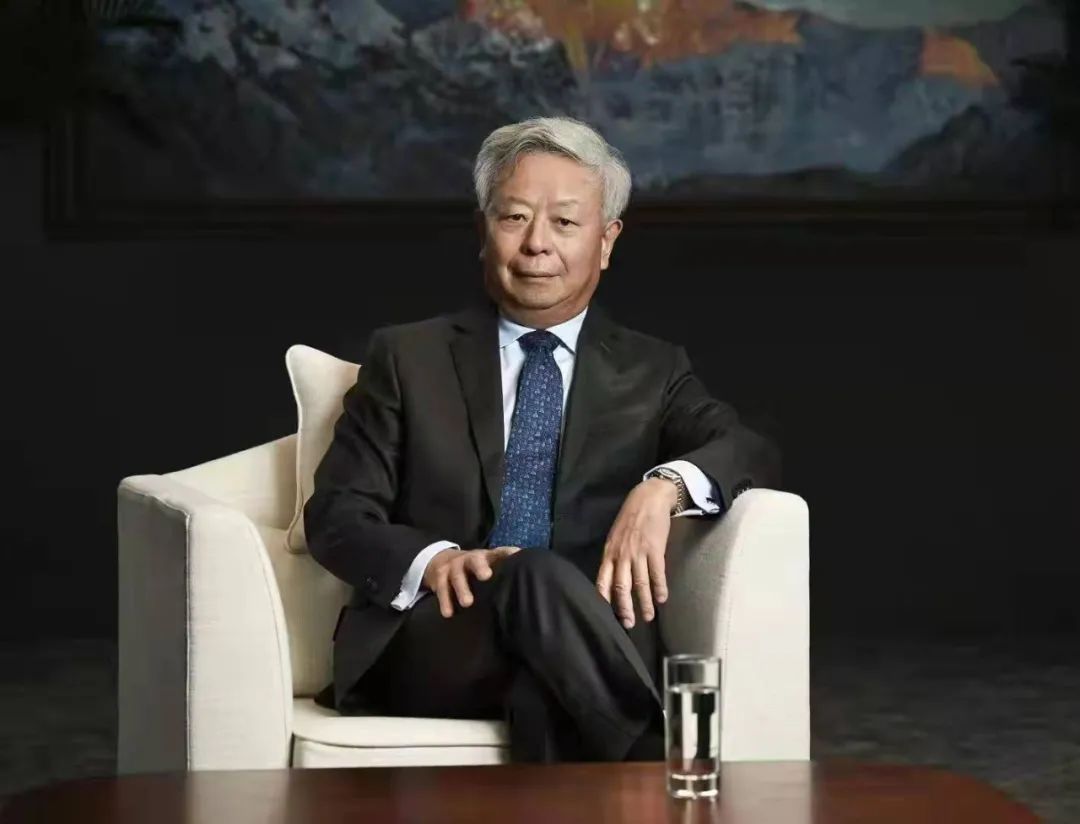金立群:在全球财富管理论坛上海苏河湾峰会上的演讲

1月15日,亚洲基础设施投资银行行长金立群出席全球财富管理论坛上海苏河湾峰会并作主旨演讲表示,新冠肺炎疫情暴露了全球经济中许多关键的脆弱性和集体缺点,使变革变得更加紧迫,我们必须将理性和可持续性带回投资中。随着全球经济的复苏,一个更可持续、更不脆弱、更平等的全球经济环境,应该成为人们所向往和追求的新图景。全球经济将需要时间过渡到近零碳排放,在这个阶段突然切断化石燃料或将导致社会动荡。对于严重依赖化石燃料的经济体来说,一个最务实可行的解决方案是将可再生能源作为优先考量,只有在绝对必要时,才为非可再生能源提供资金。他指出,亚投行从一开始就把自己定位成绿色银行,并目标到2030年,用于减缓气候变化的累计融资达到500亿美元以上,到2030年,所有新融资的一半将投向私营部门,私人投资者也将把资源投入到气候融资中。
以下为演讲全文。

全球经济复苏下的经济金融新格局
金立群
楼主席、保尔森主席、各位嘉宾,女士们、先生们:
很荣幸能在本次全球财富管理论坛上和大家分享我的想法。
首先,请让我提纲挈领地简要回顾一下新冠之前全球经济的状况。我将之归纳为以下三点:
第一,全球经济已经处于人类历史上全球化的最高水平——通过贸易、跨境投资和人员交往实现紧密相连。例如,在疫情之前,2019年国际旅游已高达约15亿人次。
第二,全球经济的第二个特点是高度分化——各经济体内部的收入不平等程度触目惊心,且日益严峻。许多发展中经济体所面临的巨大基础设施赤字并无改观,而且各国内部基础设施的可用情况天差地别。在亚投行的区域成员国中,近24亿人连基本的互联网接入都尚无法保证。这是不合理的。
第三,气候和环境恶化。在减少温室气体排放、环境保护和防止新冠或未来全球性疫情方面没有采取足够的措施。
过度全球化、无视发展分化及环境恶化,叠加全球公共产品的供应不足和不均现象,导致全球化脆弱不堪,难以为继。
在金融学和经济学中,有两句广为引用的名言:
“如果某件事不能永远持续下去,它就会停止。”美国经济学家赫伯·斯坦恩(Herb Stein)指的是美国联邦负债相对于GDP的水平。其背后的逻辑更是普遍适用,不言而喻。
另一句名言是这样的:“股市将持续非理性直至你破产”,出自经济学家约翰·梅纳德·凯恩斯。
这两种直觉往往你中有我,打成一片。我们大多数人都理性地认识到,长期以来,全球经济一直处于不可持续的状况。然而,我们中的许多人仍然希望或无奈继续维持现状,以维持我们当前的商业模式和利润。
公平地说,凯恩斯并没有说大家可以凭恃聪明,摒弃理性。相反,他发出了警告,单枪匹马,难成气候,逆市而动,愚不可及。
新冠肺炎亦有好处,它暴露了许多全球经济的弱点、大家普遍存在的缺陷,并迫使我们直面变革。赫伯·斯坦是正确的,没有变革,我们的经济将停滞不前。因此,我们作为一个集体,必须将理性和可持续性重新作为投资考量要素。
随着全球经济复苏,一个在环境方面更可持续、更加强健、更加平等的全球经济应该成为人们新的向往与追求。
我着重讲一下这一愿景是如何融入亚洲基础设施投资银行的公司战略和优先事项的:
第一,调动更多资金,努力减缓气候变化。亚洲基础设施投资银行从一开始就把自己定为一家绿色银行,但我们还需要做更多的工作。我们的目标是,到2030年,旨在减缓气候变化的累计融资支持将达到500亿美元,所有新增融资的一半将提供给私营部门,以拉动私人投资者入局气候融资并投入各种资源。
第二,我们将积极与在座诸君这样的资管机构接触和合作,推动更多的基础设施投资,加快包容性低碳增长。我们将在广受褒奖的可持续资本市场倡议和其他融资解决方案的基础上,为绿色未来释放资金。大家将成为我们的关键合作伙伴。
第三,我们将特别关注科技拉动的增长情况,包括数字投资。这关系到互联互通,但还不止于此——我们认为基础设施投资是将欠发达经济体联接全球经济、提供发展机会的一种手段。
今天在座的所有机构,正是你们将在分配资本和信贷方面发挥决定性作用,确保后危机时代更具包容性和可持续性的经济愿景得以落地。作为一家机构,我们也要直面类似的挑战。我主要提这么几点:
全球经济过渡到净零碳排放,这需要时间。贸然切断化石燃料供应将导致严重的戒断症状,许多经济体将立即陷入停滞,社会陷入动荡不安。这也是不理性的做法。像我们这样的投资者需要探索一些方法,确保其对许多严重依赖化石燃料的经济体来说破坏性最小,适应性最强。将可再生能源视为默认优先选项,只有在绝对必要的时候才为非可再生能源提供融资,就是一种即兼顾良性投资观、又满足ESG治理标准且实际可行的解决方案。
金融业需要提高绿色融资的透明度。我们需要知道资金将流向何处以确保真正的可持续性,并防止“洗绿”。我们需要采取行动,以此建立和维持公众的信心。
让我总结一下。亚洲基础设施投资银行是一个年轻的组织,与大型投资者、金融机构或基金相比,其资产负债表规模相对较小。我们的主要优势是我们的多边特质和治理状况、我们在环境和社会保障方面的人才和专门知识,因此我们有能力在这些充满挑战性的领域施加影响,开展工作。我们的任务是为我们成员的发展提供具备可持续性的基础设施。
我们期待着与各位志同道合的投资者合作,继续扩大基础设施投资,将其作为一种资产类别,造福于我们的各位成员,造福于我们的地球。
最后,我想强调一点:我们对中国强劲稳健的增长保持乐观。
十分感谢。

A New Picture of Economy and Finance under the Global Recovery
Chairman Lou, Chairman Paulson, distinguished guests, ladies and gentlemen. It gives me great pleasure to share my thoughts at this Global Asset Management Forum.
To begin, let me provide a brief recap on the high-level state of the global economy before Covid-19. I would characterize three points:
First, the global economy was at its highest level of globalization in history of mankind – highly connected through trade, cross border investments, and people to people links through travel. For example, there were around 1.5 billion international tourist trips in 2019, before pandemic.
Second, the global economy was also marked by a high level of disparity – with high and rising levels of income inequality within economies. Many developing economies continue to face large infrastructure deficits and access to infrastructure differs greatly within countries. Among the regional members of the AIIB, nearly 2.4 billion people do not have reliable access to internet. This is not equitable.
Third, there was climate and environment degradation. Not enough was being done to mitigate greenhouse gas emissions, protect the environment, and prevent Covid or future pandemics.
The combination of hyper-globalization, without addressing development disparity or environmental degradation, and inadequate and unequal provision of global public goods, makes globalization vulnerable and ultimately unsustainable.
In finance and economics, there are two well cited sayings:
“If something cannot go on forever, it will stop.”, noted the American economist Herb Stein referring to the level of federal debt relative to GDP. His logic is more general and self-evident.
The second goes like this, “The stock market can remain irrational longer than you can remain solvent”, attributed to another economist John Maynard Keynes.
These two instincts are often in a tussle. Most of us rationally recognize that the global economy has been on an unsustainable path for a long time. Yet many of us would still like or feel compelled to continue with the current status quo to maintain our current business models and profits.
To be fair to Keynes, he was not giving us the intellectual license to be irrational. Rather, he was cautioning that the action of a single actor would not be sufficient, it could even be foolish to go against the market.
The silver lining of Covid-19 is that it has exposed many key fragilities in the global economy, our collective shortcomings, and confronts us with the urgency of change. Without change, Herb Stein will be right, and our economy will stop. It is thus important that we as a collective bring back rationality and sustainability into investments.
A more environmentally sustainable, less fragile, and more equal global economy should be the new picture to aspire to and aim for with the global recovery.
I would like to highlight how this vision is embedded in the AIIB Corporate Strategy and our priorities:
First, to mobilize more finance towards climate mitigation. AIIB has set itself out to be a green bank from the beginning, but we will need to do more. We are aiming for our cumulative financing to mitigate climate change to reach upwards of 50 billion US dollars by 2030, and aim for half of all our new financing to be to the private sector by 2030, whereby the private investors will also put resources in climate financing.
Second, we will actively reach out and partner with asset investors like yourselves to drive more infrastructure investments and accelerate inclusive and low-carbon growth. We will build upon our award-winning Sustainable Capital Markets Initiative and other financing solutions to unlock funding for a green future. You will be our key partners.
Third, we will pay specific attention to technology-led growth including digital investments. It is about connectivity but also more than that – we see infrastructure investments as a means to connect lesser developed economies into the global economy and spread opportunities.
It is all the organizations here that will play the decisive role of allocating capital and credit to implement the vision for the more inclusive and sustainable post crisis economy. As a group, we will also be confronted with similar challenges. Let me highlight a few:
The global economy will take time to transition to net zero carbon emissions. Cutting out fossil fuels abruptly at this stage will lead to serious withdrawals symptoms and many economies will grind to a stop immediately, leading to social unrest. This too is irrational. Investors like ourselves need to explore approaches that are the least destructive and most amenable to many economies dependent heavily on fossil fuels. A most pragmatic and workable solution, representing a sound investment ethos and ESG standards, is to take renewables as a default and priority, financing non-renewables only when it is absolutely necessary.
The industry needs increased transparency with regards to green financing. We need to know where our financing is going and bring about genuine sustainability, and should prevent “greenwashing”. We need to build and maintain public confidence through our actions.
Let me conclude. AIIB is a young organization with a relatively small balance sheet compared to the large investors, financial institutions or funds. Our key strength is our multilateral character and governance, our people and expertise in environmental and social safeguards, and hence our ability to influence and work on these challenging areas. It is our mandate to provide sustainable infrastructure for the development of our members.
We look forward to working with like-minded investors like you to continue scaling up infrastructure investments as an asset class for the good of our members and for the planet.
Finally, I'd like to highlight a point: we remain optimistic about strong robust growth of China.
Thank you very much.
全球财富管理论坛

全球财富管理论坛是在金融开放背景下,为顺应全球资产管理行业发展与中国资产管理行业转型需求,由清华大学经济管理学院、孙冶方经济科学基金会、中国财富管理50人论坛联合发起成立的一个国际性交流平台组织,论坛旨在构建一个汇聚全球资产拥有者和管理者、监管部门和市场代表的长期对话沟通平台,为国内外资产管理机构搭建交流与合作的桥梁。

